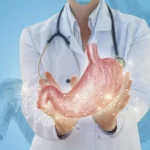Digestive issues affect countless New Yorkers each day, yet many dismiss their symptoms as temporary discomfort rather than potential warning signs. Understanding these signals can lead to earlier diagnosis and more effective treatment options from gastroenterology specialists.
Persistent heartburn, unexplained abdominal pain, changes in bowel habits, and unintentional weight loss all warrant medical attention as they may indicate underlying digestive disorders. These symptoms, while common, should not be ignored, especially when they persist for more than two weeks or intensify over time.
Key Digestive Symptoms To Watch For
Abdominal Pain and Discomfort
Abdominal pain varies widely in intensity, location, and character. Persistent pain lasting more than a few days requires medical evaluation, especially when accompanied by other symptoms.
Sharp, severe pain may indicate inflammation or obstruction. Pain in the upper right abdomen could suggest gallbladder issues, while lower left pain might relate to diverticulitis or irritable bowel syndrome.
Discomfort that worsens after eating specific foods warrants tracking in a symptom journal. Note what you ate, when symptoms appeared, and their duration.
Warning signs that require immediate attention:
- Pain that awakens you from sleep
- Severe pain accompanied by fever
- Pain with vomiting that prevents keeping liquids down
- Abdominal pain with yellowing of skin or eyes.
Bloating and Excessive Gas
Bloating occurs when the abdomen feels full and tight, often with visible distension. While occasional bloating is normal, persistent symptoms may indicate underlying conditions like irritable bowel syndrome or small intestinal bacterial overgrowth (SIBO).
Excessive gas production can result from various factors including dietary choices, swallowed air, or malabsorption issues. High-fiber foods, carbonated beverages, and certain carbohydrates commonly trigger these symptoms.
Simple remedies may help manage mild bloating:
- Eating smaller, more frequent meals
- Avoiding gas-producing foods like beans and cabbage
- Reducing intake of artificial sweeteners
- Taking probiotics (after consulting with a healthcare provider)
Frequent Heartburn or Acid Reflux
Heartburn presents as a burning sensation behind the breastbone that often worsens after eating or when lying down. Occasional heartburn affects most people, but frequent episodes may indicate gastroesophageal reflux disease (GERD).
Acid reflux occurs when stomach contents flow back into the esophagus. This can damage esophageal tissue over time and potentially lead to Barrett’s esophagus, a precancerous condition.
Common triggers include:
- Spicy, fatty, or acidic foods
- Alcohol and caffeine
- Large meals, especially before bedtime
- Smoking
- Certain medications
Lifestyle modifications often provide relief, such as elevating the head while sleeping and avoiding trigger foods. Persistent symptoms despite these changes warrant medical consultation, as prescription medications or further testing may be necessary.
Frequent Heartburn or Acid Reflux
Heartburn presents as a burning sensation behind the breastbone that often worsens after eating or when lying down. Occasional heartburn affects most people, but frequent episodes may indicate gastroesophageal reflux disease (GERD).
Acid reflux occurs when stomach contents flow back into the esophagus. This can damage esophageal tissue over time and potentially lead to Barrett’s esophagus, a precancerous condition.
Common triggers include:
- Spicy, fatty, or acidic foods
- Alcohol and caffeine
- Large meals, especially before bedtime
- Smoking
- Certain medications
Lifestyle modifications often provide relief, such as elevating the head while sleeping and avoiding trigger foods. Persistent symptoms despite these changes warrant medical consultation, as prescription medications or further testing may be necessary.
Bowel Habit Changes and What They Indicate
Changes in bowel movements often serve as important indicators of digestive health. Regular monitoring of stool consistency, frequency, and appearance can help identify potential issues requiring medical attention.
Persistent Diarrhea
Persistent diarrhea, defined as loose or watery stools lasting more than two weeks, warrants medical evaluation. This condition can result from various causes including infections, inflammatory bowel disease, or medication side effects.
Symptoms accompanying persistent diarrhea may include:
- Abdominal cramping
- Urgency to defecate
- Dehydration
- Electrolyte imbalances
Left untreated, persistent diarrhea can lead to significant dehydration and nutritional deficiencies. Patients experiencing diarrhea with fever over 102°F, severe abdominal pain, or bloody stools should seek immediate medical attention.
Chronic Constipation
Chronic constipation involves infrequent bowel movements (typically fewer than three per week) with difficult passage of hard, dry stools. This condition affects approximately 16% of adults and becomes more common with age.
Common causes include:
- Insufficient fiber intake
- Inadequate hydration
- Sedentary lifestyle
- Certain medications (opioids, antidepressants)
- Underlying medical conditions
Blood in Stool
Blood in stool represents a symptom that should never be ignored. Bright red blood typically indicates bleeding from the lower digestive tract, while dark or black stools may suggest upper GI bleeding.
Potential causes include:
- Hemorrhoids
- Anal fissures
- Inflammatory bowel disease
- Colorectal polyps or cancer
- Diverticular disease
When To Seek Gastroenterological Care In NYC
Recognizing Urgent Symptoms
Severe abdominal pain that comes on suddenly or persists for more than a few hours requires immediate medical attention. This is especially true if pain is accompanied by fever, persistent vomiting, or inability to keep liquids down.
Warning signs that warrant urgent care include:
- Blood in stool or black, tarry stools
- Unexplained weight loss of 10+ pounds
- Difficulty swallowing or painful swallowing
- Persistent heartburn not relieved by over-the-counter medications
- Jaundice (yellowing of the skin or eyes)
Prevention and Next Steps for Digestive Health
A fiber-rich diet forms the foundation of good digestive health. Aim for 25-30 grams daily through vegetables, fruits, and whole grains to promote regular bowel movements and prevent constipation.
Staying hydrated is equally important. Doctors recommend consuming 2-3 liters of water daily to soften stool and facilitate smoother digestion.
Stress management techniques can dramatically improve gut function. Studies show that meditation, yoga, and deep breathing exercises reduce symptoms in 60% of patients with functional gut disorders.
Limit these digestive irritants:
- Alcohol and caffeine
- Processed foods high in artificial additives
- Excessive fatty foods
- Known personal trigger foods.
FAQs
What symptoms indicate early stages of a gastrointestinal disease?
Early warning signs include persistent bloating that doesn’t resolve with dietary changes.
What are typical stomach issue symptoms in adults?
Abdominal pain ranging from mild discomfort to severe cramping represents the most common complaint among adults with digestive problems.
Can you list several digestive system diseases and their common symptoms?
Irritable Bowel Syndrome (IBS) typically presents with abdominal pain, bloating, and altered bowel habits without structural abnormalities.
What are some conventional treatments for gastrointestinal diseases?
Lifestyle modifications, including dietary changes and stress management, form the foundation of many gastrointestinal treatment plans. Medication therapies range from acid suppressants for GERD to anti-inflammatories for IBD and antimicrobials for infections.






